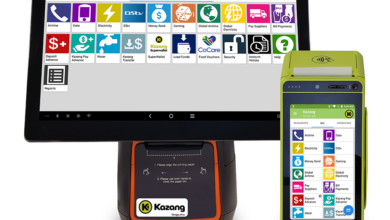Guide to Using Business Intelligence Tools in South Africa

Business Intelligence (BI) tools have become essential for companies looking to stay competitive and make data-driven decisions. In South Africa, businesses are leveraging BI solutions to enhance decision-making, optimize operations, and gain insights into customer behavior. With the right approach, BI tools can empower South African companies of all sizes to grow and adapt in a fast-evolving market. This guide outlines key considerations and steps for effectively using BI tools.
1. Understand What Business Intelligence (BI) Tools Are
Business Intelligence tools are software applications designed to collect, process, and analyze data to generate insights that support strategic decisions. These tools turn raw data into actionable insights by providing interactive dashboards, visual reports, and data analytics. Popular BI platforms like Microsoft Power BI, Tableau, and Qlik are widely used for their user-friendly interfaces and robust data processing capabilities, while some local South African solutions are tailored to regional business needs.
2. Benefits of BI Tools for South African Businesses
In South Africa’s diverse and competitive market, BI tools can provide several advantages:
- Improved Decision-Making: By providing real-time insights, BI tools help businesses make informed decisions.
- Increased Efficiency: Automation of data processes saves time and resources.
- Enhanced Customer Insights: Understanding customer preferences and behaviors can help in tailoring products and marketing.
- Market Responsiveness: BI tools can help monitor market trends, enabling quick adjustments to business strategies.
- Regulatory Compliance: BI tools can assist in tracking regulatory compliance, a key factor in sectors like finance and healthcare in South Africa.
3. Selecting the Right BI Tool for Your Business
Choosing the right BI tool depends on your business’s size, industry, budget, and specific needs:
- Assess Compatibility: Ensure the BI tool integrates well with your existing systems, such as CRMs, ERPs, or data warehouses.
- Consider User-Friendliness: Tools that are easy to use reduce the need for extensive training.
- Scalability: Look for tools that can grow with your business, especially if you plan to expand data sources or add more users.
- Cost-Effectiveness: Pricing structures vary widely; some tools like Power BI offer affordable packages for small businesses, while others may require significant investment.
- Local Support and Customization: In South Africa, some vendors offer localized support and solutions tailored to local industry standards and compliance needs.
4. Implementing BI Tools: Key Steps
Define Clear Objectives
Before implementing BI tools, outline clear objectives to ensure the tools address specific business needs. Identify the metrics you want to track and the types of insights that would add value. For example, a retail business may want to monitor sales trends, while a manufacturing company might focus on supply chain efficiency.
Prepare Your Data Infrastructure
BI tools require clean, structured data to function effectively. Assess your current data infrastructure to ensure data sources are organized, secure, and accessible. Setting up a reliable data warehouse or storage solution can centralize data from various sources, improving BI performance.
Start with Key Users and Stakeholders
To maximize the effectiveness of BI tools, involve key users and stakeholders from different departments. This can include finance, marketing, and operations teams who will benefit from BI insights. Gathering input early helps tailor the tool setup to meet diverse needs and encourages broader buy-in across the organization.
Train Your Team
Training is essential for teams to fully utilize BI tools. Most providers offer training resources, from online tutorials to in-depth workshops. For South African businesses with limited BI experience, investing in training can ensure teams are equipped to make the most of the tool, understand dashboards, and interpret data accurately.
Build Interactive Dashboards
Customizable, interactive dashboards are one of the most valuable features of BI tools, as they allow users to monitor KPIs and access visual data insights. Start by building dashboards that address core business goals, such as sales performance, customer engagement, and financial metrics, then expand as needed. For example, using color coding and intuitive visualizations can make it easier for users to spot trends and anomalies.
5. Overcoming Common BI Challenges in South Africa
Implementing BI tools isn’t without challenges, and South African businesses should be prepared for potential obstacles:
- Data Quality: Poor data quality can lead to inaccurate insights. Regular data cleaning and validation processes are necessary to maintain reliable information.
- High Implementation Costs: Some BI tools have high licensing fees. For small businesses, cloud-based BI solutions can offer a more cost-effective alternative.
- Skill Gaps: BI tools require certain skills to interpret data effectively. Upskilling or hiring data analysts can help bridge this gap.
- Data Security and Compliance: South African businesses must comply with data privacy regulations like POPIA. Ensuring the BI tool meets security and compliance standards is essential.
6. Making the Most of BI Insights
Once the tool is set up, BI insights should be actively used to refine and improve business strategies. Here’s how to make the most of your BI data:
- Monitor KPIs Regularly: Set up regular reviews to track KPIs, identifying areas of improvement and opportunities for growth.
- Encourage Data-Driven Culture: Promote a culture where decisions are supported by data rather than assumptions, making BI insights integral to everyday operations.
- Experiment and Iterate: BI insights can help test new strategies. For example, you might track the impact of a marketing campaign on sales, using data to tweak campaigns for better results.
- Use Predictive Analytics: Advanced BI tools offer predictive analytics features, helping you anticipate trends and prepare for future market shifts.
7. Evaluating BI Performance and ROI
Regularly evaluating the effectiveness of BI tools helps determine whether they’re meeting your business objectives. Track metrics such as:
- Time Saved on Data Analysis: Measure how much time BI tools save your team in analyzing data compared to previous methods.
- Improved Decision-Making: Assess whether the tool’s insights have led to better decision-making and measurable improvements in performance.
- ROI: Calculate the return on investment from BI tools by evaluating cost savings, revenue growth, and enhanced operational efficiency.
Business Intelligence tools offer South African businesses the ability to navigate complex markets with data-driven precision. By selecting the right tool, setting clear objectives, and building a culture of data-driven decision-making, South African entrepreneurs and companies can leverage BI to stay competitive and agile. As businesses in South Africa face unique challenges, BI tools can offer critical support, transforming data into a powerful resource for sustainable growth and innovation.




